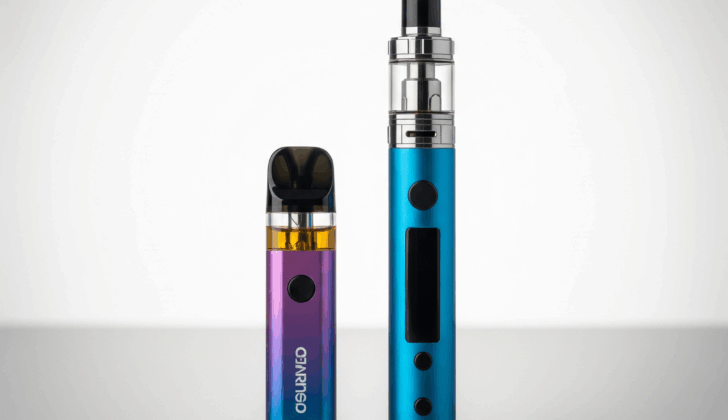With the rise of vaping among teens, parents are increasingly hearing about something called “nicotine salts.” While they may sound harmless—or even healthy—this form of nicotine can pose serious health risks, especially for young people. If you’re feeling unsure or overwhelmed by this new trend, you’re not alone. This article breaks down what nicotine salts are, why they matter, and how they may affect your child’s health.
What Are Nicotine Salts?
Nicotine salts, also known as “nic salts,” are a modified form of nicotine found in many e-cigarettes and vape products. They are created by combining pure nicotine (called freebase nicotine) with an acid, usually benzoic acid. This combination makes the nicotine easier to inhale and absorb into the bloodstream more quickly.
Unlike traditional cigarette nicotine, which can be harsh on the throat at higher levels, nicotine salts allow for higher concentrations of nicotine to be inhaled more comfortably. That’s why many vaping products that target younger users, such as JUUL pods, use nicotine salts.
Why Should Parents Be Concerned?
1. High Nicotine Levels
One of the biggest concerns with nicotine salts is that they deliver a lot more nicotine than traditional tobacco products. A single pod can contain as much nicotine as a whole pack of cigarettes—or more. This can quickly lead to nicotine addiction, even in kids who are only vaping occasionally.
2. Youth Appeal and Addiction Risk
Nicotine salts are often used in flavored vape products with names like “cotton candy,” “mango blast,” or “blueberry ice.” These sweet, fruity options are particularly appealing to teenagers, and the smoother experience makes it easier for them to inhale large amounts of nicotine without discomfort.
Teen brains are still developing, and nicotine can interfere with brain development, attention, learning, and impulse control. The earlier a child starts using nicotine, the greater the risk of long-term addiction.
3. Misleading Packaging and Marketing
Some vape products that use nicotine salts look like USB drives or school supplies, making them easy to hide. Others may not clearly label their nicotine content. This makes it hard for both parents and kids to understand the risks they’re facing.
4. Increased Risk of Health Problems
While vaping is often marketed as “safer than smoking,” it’s not safe—especially for young people. Nicotine salts, in particular, may contribute to:
-
Heart problems: Nicotine raises heart rate and blood pressure.
-
Lung damage: Vape aerosols contain harmful chemicals and ultrafine particles.
-
Addiction pathways: Teens who vape are more likely to try cigarettes and other substances later.
The long-term effects of inhaling nicotine salts are still being studied, but early research raises serious red flags.
How Do I Know if My Child is Using Nicotine Salts?
It’s not always easy to tell. Vapes can be discreet, and the vapor often doesn’t leave a strong odor like cigarettes. Here are some signs to watch for:
-
Sweet or unusual smells on clothes or in the room.
-
Increased thirst or nosebleeds (common vaping side effects).
-
Mood swings, anxiety, or trouble concentrating.
-
Possession of unfamiliar USB-like devices, pods, or chargers.
-
Spending more time in private or avoiding family interactions.
If you suspect your child may be using vape products, including nicotine salts, try to approach the topic with curiosity and concern, rather than punishment. Open, honest conversations are more likely to lead to real change.
What Can Parents Do?
1. Get Informed
Understanding what nicotine salts are and how they work helps you talk with your child from a place of knowledge. Share facts in a calm, non-judgmental way.
2. Talk Early and Often
Start conversations before your child is exposed to vaping. Ask what they’ve seen at school or online. Let them know you’re there to support them, not lecture them.
3. Set Clear Expectations
Explain your family’s stance on nicotine and why it matters. Be consistent with consequences and model healthy behavior yourself.
4. Encourage Healthy Alternatives
Support your child’s involvement in sports, arts, or other interests that promote self-esteem and keep them engaged.
5. Know When to Ask for Help
If you suspect addiction, talk to your child’s doctor or a school counselor. There are also resources like the Truth Initiative’s “This is Quitting” program, which offers free support for teens who want to stop vaping.
The Bottom Line
Nicotine salts may be marketed as sleek and modern, but they’re far from harmless—especially for young people. As a parent, you have the power to make a difference by staying informed, talking to your child, and creating a safe space for tough conversations. Prevention and early support go a long way in protecting your child’s health and future.
For further reading:
MDS: Creatine Benefits: Boost Muscle, Brain Health, and Energy Naturally












